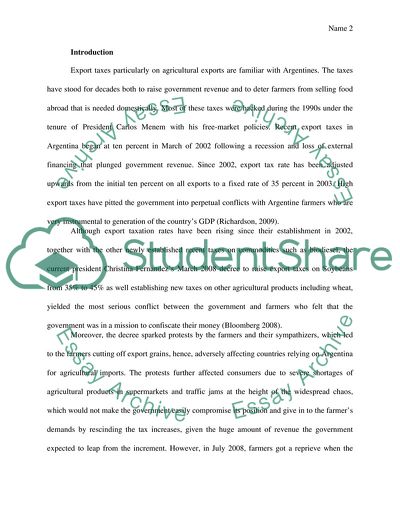Cite this document
(Establishment of Export Tax in Argentina Term Paper Example | Topics and Well Written Essays - 4000 words, n.d.)
Establishment of Export Tax in Argentina Term Paper Example | Topics and Well Written Essays - 4000 words. https://studentshare.org/macro-microeconomics/1844295-establishment-or-higher-magnification-of-export-tax-in-argentina
Establishment of Export Tax in Argentina Term Paper Example | Topics and Well Written Essays - 4000 words. https://studentshare.org/macro-microeconomics/1844295-establishment-or-higher-magnification-of-export-tax-in-argentina
(Establishment of Export Tax in Argentina Term Paper Example | Topics and Well Written Essays - 4000 Words)
Establishment of Export Tax in Argentina Term Paper Example | Topics and Well Written Essays - 4000 Words. https://studentshare.org/macro-microeconomics/1844295-establishment-or-higher-magnification-of-export-tax-in-argentina.
Establishment of Export Tax in Argentina Term Paper Example | Topics and Well Written Essays - 4000 Words. https://studentshare.org/macro-microeconomics/1844295-establishment-or-higher-magnification-of-export-tax-in-argentina.
“Establishment of Export Tax in Argentina Term Paper Example | Topics and Well Written Essays - 4000 Words”. https://studentshare.org/macro-microeconomics/1844295-establishment-or-higher-magnification-of-export-tax-in-argentina.


